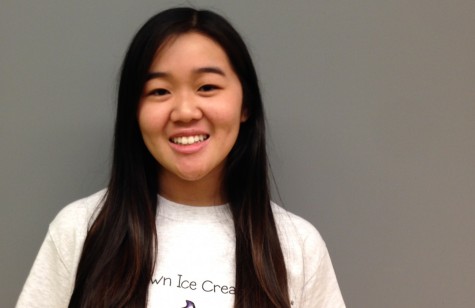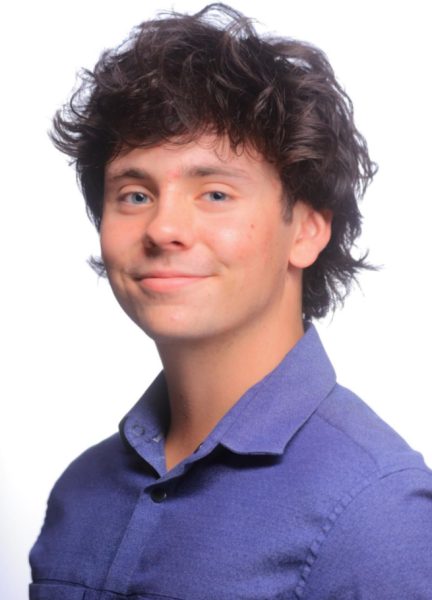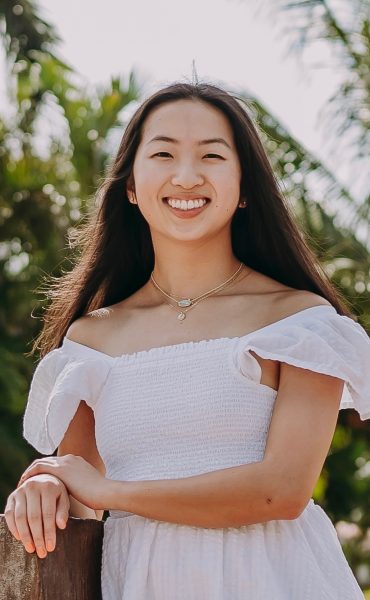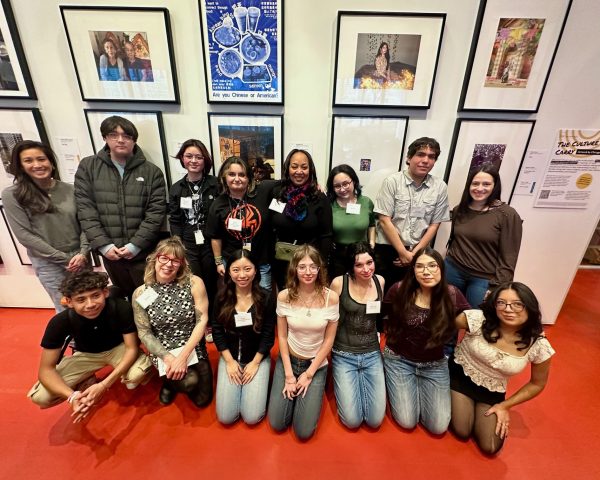Signs point to change in hearing impaired program

“Lane doesn’t have any way to predict the future of the Deaf/Hard of Hearing Program,” Assistant Principal Ms. Hart said. “Programs are driven by student’s need. We need students that require the services to enroll and attend Lane to sustain a program.”
As Lane becomes increasingly competitive, encompassing various subjects such as English with the STEM program, there is a decreasing amount of deaf students who are able to go to Lane.
“[Lane is] focusing on English as a benchmark for kids to get in,” Julia Ralenkotter, Div. 651, one of Lane’s Deaf students, said. “Deaf kids are normally educated in American Sign Language (ASL), and so, English is their second language. ASL and English have completely different grammar syntax, not to mention that with any hearing loss it’s really easy to miss out on the specifics of English. With careful instruction and access to opportunities they can absolutely master English, but it can be a challenge.”
Due to the English “benchmark,” many Deaf/HoH (hard of hearing) students are now attending schools, such as Whitney Young, Prosser, Illinois School for the Deaf, and Model Secondary School for the Deaf. Ralenkotter believes that schools like Lane “assume that there will always be students with IEP/504 plans that are capable of being [included] no matter the level of coursework when that is really not the case.”
An IEP/504 plan is a specialized plan that provides individualized special education (IEP) or services or changes to a learning environment (504) to meet accommodate the needs of students with mental or physical disabilities.
After Ralenkotter graduates this year, there will only be four Deaf/HoH students left at Lane, not including the incoming freshmen, and none require an interpreter. According to Hart, without the need for an interpreter, the two employed at Lane may be at risk for losing their jobs.
Although there were various other schools that she could have attended, Ralenkotter chose to attend Lane because of the multiple resources and aids, like the interpreters.
“There is a very great support team here, and I kept being told how welcoming and diverse Lane was,” Ralenkotter said. “That turned out to be totally correct. Ms. [Malinowski, Julia’s interpreter] has been wonderful in advocating for my needs and services, meets with all of my teachers, and makes sure that I have exactly what I need to succeed at Lane. She has made me more self-confident and aware of what I need to succeed, and to not be afraid to ask for it.“
Students such as Brennen Bariso, Div. 652, have come to support Lane’s Deaf/HoH program. In 2012, Bariso founded ASL Club to teach students how to communicate with people who use ASL.
“I started sign language club because I wanted to share my interest with others who might want to learn sign language,” Bariso said. “I was surprised that there wasn’t already one at Lane so I decided to start one myself.”
Lane’s decreasing amount of Deaf/HoH students, according to Ralenkotter, is a “tragedy” due to the program being a large part of the school’s history.
“I have 50 year old Deaf men come up to me at my church, and they say that they’re so proud to be Lane Tech Indians too,” Ralenkotter said. “I love the idea that Deaf people were always here, working alongside hearing people and mastering these hallways like everybody else, experiencing ROTC and weight training and Drivers’ Ed. and dances just like everybody else.”
Bariso, who will be going to Northwestern University to study American Sign Language this fall, will be passing on the club to Hannah Hennessy and Katie O’Hara. He said fewer students in Lane’s Deaf/HoH program will not negatively affect the club.
“We only have one deaf member right now and everyone else is hearing,” Bariso said. “I think people will continue to join the club as long as there is a desire to learn, even though there may not be any deaf students in the club.”
In order to have more Deaf/HoH students at Lane, Ralenkotter believes that Lane should begin accepting a wider range of scores and focusing on special needs students who are strong in subjects, such as Math and Science, but “may be weak in [English].”
“Nobody considers the deaf people, we’re kind of the voiceless minority, but we exist,” Ralenkotter said. “We lived, worked, experienced life. And it’s a shame that no one talks about it. We might have been that kid who won that wrestling match, or that kid who was really good at art. We might have sat in the cafeteria just a table away, or maybe we even sat next to you. We didn’t speak the same language, but we were definitely here.”
Your donations directly fund the Lane Tech student journalism program—covering essential costs like website hosting and technology not supported by our school or district. Your generosity empowers our student reporters to investigate, write, and publish impactful stories that matter to our school community.
This website is more than a publishing platform—it's an archive, a research tool, and a source of truth. Every dollar helps us preserve and grow this resource so future students can learn from and build on the work being done today.
Thank you for supporting the next generation of journalists at Lane Tech College Prep!




